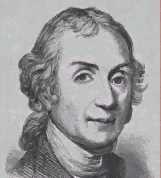The Birmingham Riots


For its supporters, the falling of the Bastille, the oppressive French prison, on 14 July 1789 symbolised the success of the French Revolution, the beginning of democracy and of a new age.
Bastille Day was therefore to be celebrated.
And that is what a group of Birmingham radicals decided to do in 1791. Their decision to hold a banquet at a Birmingham Hotel was one of the factors that led to rioting, arson, looting and death.
One of the key figures to suffer from the actions of the mob was Reverend Joseph Priestley, Unitarian minister of New Meeting, Birmingham. His chapel and his house were both destroyed and a large part of his life's work was destroyed too. But it was not just the dinner which incited violence. Handbills had been distributed in Birmingham calling for mass demonstrations against the present 'establishment in Britain'. (Some contemporaries thought they had been devised by enemies of Priestley who wanted them to be seen as his.) Priestley did not attend the banquet, but his radical views were well known: he had sided with the American colonies in their rejection of British rule; he supported the principles of the French Revolution; he was a non-conformist minister, a Unitarian, rejecting the teaching of the Established Church that God, Jesus and the Holy Spirit formed a divine Trinity.
The rioting lasted four days. Whilst Joseph Priestley suffered the most severe losses, other radical non-conformist figures also suffered from arson and looting.